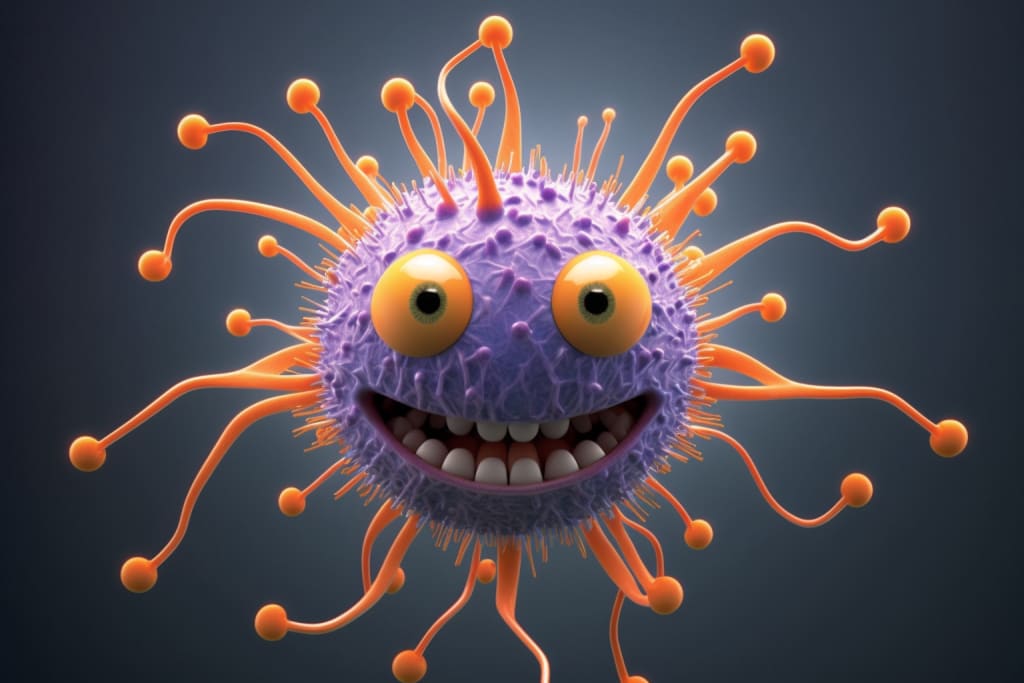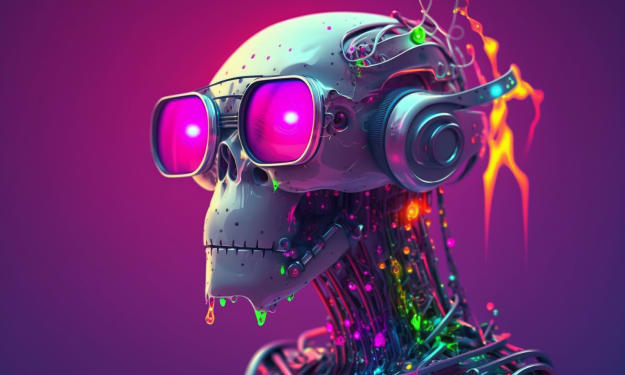Biocomputers With Organoid Intelligence Could Replace AI
Benefits, Challenges and other Thoughts

The future of computing technology may be drastically different from what we are used to today. Scientists are currently researching a new type of computer that could replace Artificial Intelligence (AI): biocomputers with organoid intelligence. Instead of using conventional electronics, these computers would be constructed using living cells and organic materials. This revolutionary approach has the potential to revolutionize computer technology and lead to unprecedented advances in artificial intelligence.
Exploring Biocomputers
Biocomputers with organoid intelligence are a new type of computer that is modeled on biological systems. These computers are capable of mimicking the behavior of natural organisms, such as animals and plants. By using artificial intelligence (AI), these biocomputers can learn from their environment and evolve over time in response to changing conditions. The potential applications for this technology are vast, from robotics to self-driving cars to medical diagnosis. Biocomputers could potentially replace some current AI applications, since they offer more flexible programming options and can better understand complex tasks.
One of the most intriguing aspects of biocomputers is their ability to process data in more natural ways than traditional computers do. For example, a biocomputer might be able to recognize patterns in large datasets that might otherwise go unnoticed by an AI algorithm. This could lead to faster problem-solving capabilities, as well as provide insights into how biological systems work. In addition, because these machines use living cells instead of electronic components like transistors or resistors, they consume less electricity while producing fewer emissions than traditional computers do.
Biocomputers could revolutionize the way we approach computing tasks in the near future and beyond. As researchers continue to explore ways to enhance their capabilities further - perhaps even creating neural networks or other types of self-learning systems - it's possible that they will eventually become powerful enough to completely replace current AI systems altogether.
What Are Biocomputers?
Biocomputers are a new type of computer that can use living cells and tissues to process information. The technology combines biology and computing, using organoids – small clusters of functional human cells grown in the lab – to create a powerful computing system. Unlike traditional computers, which rely solely on electricity, biocomputers can use both electrical signals and chemical reactions to store and process data. This makes them much more efficient than traditional computers. Furthermore, they have the potential to be incredibly energy-efficient.
Biocomputers could potentially be used as an alternative to artificial intelligence (AI). AI systems rely heavily on software algorithms which can often be difficult for humans to understand or control. By contrast, biocomputers would use organoid intelligence which is much easier for humans to understand as it uses biological principles rather than complex algorithms. This means that decisions made by biocomputers could potentially be better understood by humans due to their underlying biological logic.
In addition, biocomputers have the potential to act like "living brains" as they would use organic materials such as neurons and synapses which are naturally found in the brain - unlike existing AI systems which rely solely on computer circuitry and code. This has tremendous potential implications for medical research particularly with regards to neurology where researchers could explore how neural networks interact with each other within a living organism in real time through a biocomputer interface – something that is currently impossible with existing technologies.
How Do They Work?
Organoid intelligence, which is the intelligence contained in living organisms, could eventually replace artificial intelligence (AI). This revolutionary technology has come from biocomputers. Biocomputers are a type of computer that uses living cells as its processor instead of electronic circuitry. They have proved to be much faster and more efficient than traditional computers due to their increased complexity and speed at which they process information.
Biocomputers use organoids as their processors. Organoids are clusters of cells that are grown in a laboratory environment, with each cell functioning independently like a neuron or brain cell would. These organoids can be programmed to carry out complex tasks such as pattern detection or even machine learning algorithms. The programming requires specialized techniques which allow the biocomputer to learn and adapt over time. As these cells interact with one another they can form networks that can solve problems more quickly and accurately than traditional AI systems.
The capabilities of biocomputers mean they could eventually replace AI systems currently used in many industries such as finance and healthcare. They could also potentially be used to create autonomous robots or self-driving vehicles that react quickly to changing conditions on their own without relying on pre-programmed instructions from humans or machines. Ultimately, this revolutionary technology promises to revolutionize the way we interact with computers in the future by making them smarter and more efficient than ever before.
Benefits of Organoid Intelligence
Organoid intelligence is an AI technology that combines living organic material with a computer system to create a hybrid biocomputer. This form of artificial intelligence has many potential benefits over traditional AI, such as increased speed, improved accuracy and the ability to think more organically. One of the biggest advantages of organoids is their ability to share and process data in a much faster manner than traditional AI. By incorporating real-world biological processes, organoid intelligence can learn faster than standard algorithms and become more accurate over time.
Additionally, this type of AI technology allows for more sophisticated decision-making capabilities. Organoids can interpret data from multiple sources simultaneously while accounting for factors like emotion or sentiment when formulating decisions. This could lead to improved decision-making abilities in various areas such as medical diagnosis or financial investments, as well as more effective customer service applications. Finally, since this type of technology relies heavily on biological structures it can be easily adapted to new environments without needing significant development or programming efforts. All these benefits make organoid intelligence an attractive option for businesses looking for advanced AI solutions.
Challenges of Replacing AI
Organoid intelligence (OI) is a new form of artificial intelligence that uses living cells, rather than just computer algorithms, to power its systems. OI offers many advantages over traditional AI, such as greater autonomy, improved decision-making capabilities, and faster learning. However, there are some challenges associated with replacing traditional AI with OI.
The first challenge is the cost. Developing OI requires significant investments in research and development resources to create a biocomputer capable of processing complex tasks. Additionally, it may require additional infrastructure investments to support the biocomputer's operations. This could make the transition from traditional AI to OI prohibitively expensive for many organizations who would otherwise benefit from its advantages.
Another challenge is safety and reliability concerns surrounding biocomputers with OI technology. While AI has raised ethical questions about its use in certain contexts, those same questions become even more pressing when dealing with living cells that are powering an intelligent system. Organizations must ensure that their biocomputers are safe for use and not prone to unforeseen glitches or bugs that could result in unexpected outcomes or decisions being made by the system. Furthermore, given the complexity of these systems it may be difficult for organizations to troubleshoot any issues that arise during operation as opposed to more traditional forms of AI which can often be debugged easily by developers or engineers familiar with the codebase being used.
Practical Implications for Future Tech
The advent of biocomputers with organoid intelligence will create huge practical implications for future tech. For instance, instead of relying on algorithms and coding to develop AI models, researchers will be able to use the information stored in living cells as a basis for creating more complex machines. This could potentially lead to the development of more advanced robots that are closer to human intelligence than ever before. Additionally, biocomputers could also provide a platform for rapid prototyping and experimentation with new technology, allowing companies and research labs to explore ideas that would have been impossible or too costly to investigate using traditional methods.
Organoid Intelligence (OI) could also open up new possibilities for developing technologies that are customized according to individual users’ needs. OI-based biocomputers could store large amounts of data in its memory banks, which can be accessed and used for various applications related to healthcare, education, and other domains requiring personalized solutions. Furthermore, since OI does not rely on algorithms or software coding like conventional AI systems do, it is possible that these computers may eventually become capable of learning from their environment and experiences over time—just like humans do—leading us into an era where intelligent machines can take decisions autonomously.
Conclusion: Merging Biology and Technology
The potential for merging biology and technology is immense, though it carries with it some significant ethical considerations. Biocomputers that use organoid intelligence could potentially prove to be a viable alternative to artificial intelligence (AI). By using native organs from other animals or even human organs, biocomputers could offer a more efficient way of processing data. The benefits of this approach would include increased accuracy in data interpretation, as well as the potential for greater computational power by using multiple organs at once. Additionally, organoid intelligence may help reduce the environmental impact of technology because there wouldn't be any need for additional energy consumption.
However, there are major ethical questions surrounding this type of technology that must be addressed before it can be adopted on a large scale. To begin with, many people are uncomfortable with the idea of harvesting body parts from humans or animals in order to create biocomputers; despite being ethically contentious though, these concerns must not impede progress if we are to fully realize the potential offered by this technology. In addition to this moral quandary, researchers will also have to consider whether or not biocomputers should be regulated and whether they can remain secure against malicious actors who seek to exploit them for their own gain.
Ultimately, while merging biology and technology presents some major challenges, it also has the potential to revolutionize how we process data and interact with computers in a variety of ways.
About the Creator
Patrick Dihr
I'm a AI enthusiast and interested in all that the future might bring. But I am definitely not blindly relying on AI and that's why I also ask critical questions. The earlier I use the tools the better I am prepared for what is comming.






Comments
There are no comments for this story
Be the first to respond and start the conversation.